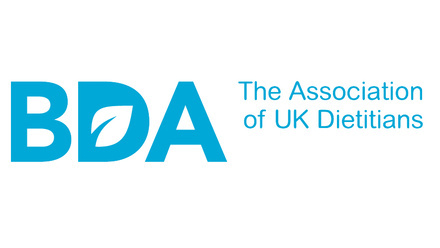The BDA has joined more than 70 health and medical organisations in urging the new Prime Minister to reconsider any plans to abandon measures to promote children's health without facing the scrutiny of Parliament.
It is vitally important that the Government does not drop its plans for an obesity strategy. The health of our nation is of vital importance and we must ensure that people are equipped with the knowledge and tools required to make informed decisions on the food and drink that they consume.
While the private sector has made great efforts within this space, it requires the driving force of Government to make sure that good practice and information is applied across the entirety of the food and drink industry. It is vital that we’re ambitious within this space to ensure that we provide people with the means to stop preventable illnesses caused by unintentionally poor diets.
BDA CEO Liz Stockley said: “The BDA is proud to be supporting this letter. The health of our nation is vitally important and it is beyond disappointing to hear that the Government is planning to drop its obesity strategy. This is not about policing people’s food, but ensuring that they have the information and proper choices to make healthier decisions. We urgently call on the Government to reconsider its position and deliver on its promised obesity strategy.”
The BDA urges the Government to reconsider its position and you can read the full letter by the Obesity Health Alliance below:
Dear Prime Minister
We are writing on behalf of leaders of health charities, medical organisations, health professionals and thousands of patients to express our profound concern that measures to promote children's health may be abandoned. We strongly urge you to reconsider.
Health is a key national asset. It enables us to work, to be more productive, to live longer, healthier lives. The causes of obesity and diet-related disease are complex and multifaceted, so the solution is a multifaceted plan. You have the opportunity to implement forward thinking policies, grounded in strong evidence, that have substantial public support and put you in a position to improve the health of the nation, and thus increase economic growth and reduce state spending.
Cutting preventable illness is crucial if the Government is going to tackle the NHS backlog, realise its targets to halve childhood obesity by 2030 and deliver on levelling up, as poor diet is a key driver of regional health inequalities. Population level policies - like the Soft Drinks Industry Levy and incentivising healthier food marketing - are more effective and more equitable than individual behaviour change policies. They are also popular with the public who want it to be easier to make healthier choices: 3 in 5 people are in support of unhealthy food and drink advertising restrictions being implemented in January 2023 as originally intendedi.
What is good for health is also good for business. The Soft Drinks Industry Levy is an extremely successful policy that reduced the amount of sugar in soft drinks by 30%ii, whilst increasing sales in the market (up 5.7% in 2021iii). Not only has the successful Soft Drinks Levy removed 48,000 kilos of sugar from the nation's dietiv, the over £1 billion raised by it has funded over 2,000 school breakfast clubs and school holiday programmes feeding a million children each yearv. It has also funded sports and PE equipment for primary schools. To stop collecting the Soft Drink Industry Levy revenues would lead to an increase in costs for families on lower 2 incomes who vitally need these programmes. It is a smart, effective and longstanding policy that has benefited both businesses and those on lower incomes.
We share your concerns about the cost of living, but the OECD has found that average tax bills were £300 per year higher in countries with high levels of obesityvi.
We strongly urge you to reconsider any plans to weaken the public health measures. As representatives of health charities, medical organisations, health professionals and thousands of patients, we think it should be easy for everyone to eat healthily, especially children. But it clearly isn’t: in an average class of 30 year-six children, 12 will be living with overweight or obesityvii. You can make it easier for them to have a healthy, productive future.
Yours sincerely,
The Obesity Health Alliance
Chris Askew, Chief Executive, Diabetes UK
Dr Charmaine Griffiths, Chief Executive, British Heart Foundation
Michelle Mitchell, Chief Executive, Cancer Research UK
Dr David Strain, Chair of Board of Science, British Medical Association
Dr Camilla Kingdon, President, Royal College of Paediatricians and Child Health
Dr Trudi Seneviratne OBE, Registrar, Royal College of Psychiatrists
Professor Kevin Fenton, President, Faculty of Public Health
Ben Reynolds, Deputy Chief Executive, Sustain: The alliance for better food and farming
Katharine Jenner, Director, Obesity Health Alliance
William Roberts, Chief Executive, Royal Society for Public Health
Prof Giles Yeo MBE, Professor of Molecular Neuroendocrinology, University of Cambridge; Honorary President, British Dietetic Association
Barbara Crowther, Coordinator, Children’s Food Campaign
Professor Graham MacGregor, Chair, Action on Salt and Sugar
James Toop, CEO, Bite Back 2030
Pamela Healy OBE, Chief Executive, British Liver Trust
June O’Sullivan, Chief Executive, London Early Years Foundation
Dr Linda Greenwall, Dental Wellness Trust
Kim Roberts, Chief Executive, HENRY: Healthy Start, Brighter Future
Rebecca Sunter, Programme Director, Impact on Urban Health
Hugo Harper, Director of A Healthy Life Mission,
Nesta Rachael Gormley, CEO, World Cancer Research Fund
Lorraine Tulloch, Programme Lead, Obesity Action Scotland
Dr Rebecca Jones, President, The British Association for the Study of the Liver
Alison Morton, Executive Director, Institute of Health Visiting (iHV)
Maria Bryant, Professor of Public Health Nutrition, University of York and Fix our Food
Ignacio Vazquez, Head of Health, ShareAction
Eddie Crouch, Chair, British Dental Association
Dr Matthew Philpott, Executive Director, Health Equalities Group
Professor Dame Helen Stokes-Lampard, Chair, Academy of Medical Royal Colleges
Anna Taylor OBE, Executive Director, The Food Foundation
Mike McKirdy, President, Royal College of Physicians and Surgeons of Glasgow
Dr Edward Morris, President, Royal College of Obstetricians and Gynaecologists
Dr Vicky Sibson, Director, First Steps Nutrition Trust
Professor Andrew Elder, President, Royal College of Physicians of Edinburgh
Professor Vinod Menon, President, British Obesity & Metabolic Surgery Society 3
Dr Nicola Heslehurst, Chair of the Board of Trustees, Association for the Study of Obesity
Michael Baber, Director, Health Action Campaign
Professor John Wass, Professor of Endocrinology, Oxford University
Rebecca Cooper, CEO, Children’s Liver Disease Foundation
Dr Adrian Brown, Chair, British Dietetic Association Obesity Specialist Group
Sarah Le Brocq, Director All About Obesity & Obesity Advocate
Kathy Lewis, Acting Chair, The Caroline Walker Trust
Professor Shona Hilton, Deputy Director, MRC/CSO Social and Public Health Sciences Unit, University of Glasgow
Dr Fiona Donald, President, The Royal College of Anaesthetists
Martin Tod, Chief Executive, Men’s Health Forum
Professor Jim McManus, President, Association of Directors of Public Health (ADPH)
Lynda Phillips, CEO, British Association of Sport and Exercise Medicine (BASEM)
Mr Matthew Garrett, Dean, Faculty of Dental Surgery, Royal College of Surgeons of England
Professor Simon Capewell, University of Liverpool
Professor Rachel Batterham OBE PhD FRCP, special adviser on obesity, Royal College of Physicians
Dr Marissa Smith, Research Assistant, MRC/CSO Social and Public Health Sciences Unit (SPHSU), University of Glasgow
Rob Percival, Head of Food and Health Policy, Soil Association
Professor Amandine Garde, Law & NCD Research Unit, University of Liverpool
Professor Sir Stephen O’Rahilly, Director, Medical Research Council, Metabolic Diseases Unit, University of Cambridge
Prof Jack Winkler, Professor of Nutrition Policy, London Metropolitan University (Retired)
Feng He, Professor of Global Health Research, Queen Mary University of London
Sarah Turner, Chair, The Breastfeeding Network
Professor Laurence Moore, Director, MRC/CSO Social and Public Health Sciences Unit
Neville Rigby, convener, International Obesity Forum
David McColgan, Chair, NCD Alliance Scotland
Stephanie Slater, Founder/ Chief Executive, School Food Matters
Professor Sir Nicholas Wald, University College London
Tam Fry FRSA, Patron of Child Growth Foundation and Chair of National Obesity Forum
Carina Millstone, Executive Director, Feedback
Patricia Marquis, Director, Royal College of Nursing
Professor Alexandra Johnstone, Association for the Study of Obesity Scottish Network
Sheila Duffy, ASH Scotland Professor Sadaf Farooqi, Professor of Metabolism and Medicine, University of Cambridge and Scientific Advisor, Obesity Empowerment Network
Jill Muirie, Chair, Glasgow Food Policy Partnership
Phil Pyatt, CEO, Blood Pressure UK
i Not delaying the implementation of a 9pm watershed on junk food advertising, as well as a ban on paid-for online junk food advertising, was supported by a majority of those who are most deprived (56%) and an even greater proportion of those who are least deprived (63%). These are unpublished findings from the Cancer Research UK’s Public Polling( July 2022) online survey weighted to be nationally representative of the UK (N=2119). Data collected by YouGov Plc.
ii https://www.bmj.com/content/372/bmj.n254
iii [NielsenIQ 52 w/e 7 September 2019]
iv Sugar Reduction: progress 2015-2019, published by PHE, October 2020 https://www.gov.uk/government/publications/sugar-reductionreport-on-progress-between-2015-and-2019
v Sugar Reduction: progress 2015-2019, published by PHE, October 2020 https://www.gov.uk/government/publications/sugar-reductionreport-on-progress-between-2015-and-2019
vi https://www.oecd-ilibrary.org/sites/6cc2aacc-en/index.html?itemId=/content/component/6cc2aacc-en




